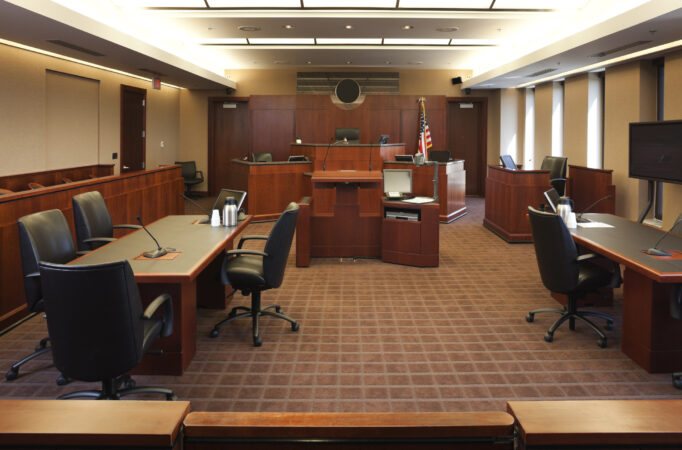Litigation
Pennsylvania Supreme Court to Finally Tackle Restatement Second vs. Restatement Third Issue
In Tincher v. Omega Flex, 64 A.2d 626, the Pennsylvania Supreme Court granted a Petition for Allowance of Appeal to address the issue of :
“Whether this Court should replace the strict liability analysis of Section 402 of the Second Restatement with the analysis of the Third Restatement.” Id
In doing so, Pennsylvania will attempt to set forth a uniform applicable standard to products liability law which has evaded the Court since the 2003 case Phillips v. Cricket Lighters, 841 A.2d 1000 ( Pa. 2003). The ramifications of such a decision are sure to change the landscape for Plaintiffs and Defendants going forward.
Split in Authority
Currently, there is a split of authority in Pennsylvania with regard to whether the Restatement Second of Torts or the Restatement Third of Torts should be applied in Pennsylvania products liability cases. This split now is between the state and federal courts, and in some respects between the several federal courts and judges. Over the last two years, the United States Federal Courts for the Eastern, Middle, and Western District have issued opinions which favor alternatively both the Restatement Second and the Restatement Third in products liability cases. The Pennsylvania Supreme Court, however, has held, so far, that the Restatement Second is to be applied in all strict products liability cases in Pennsylvania. [1] The Beard Court’s Opinion was in response to an Opinion issued by the United States Third Circuit Court of Appeals, in which it “predicted” that Pennsylvania would adopt the Restatement Third.[2]
Accordingly, under the current landscape of Pennsylvania product liability law, the determination of whether the case will be governed by the Restatement Second of Torts or the Restatement Third of Torts depends on whether the case is in state or federal court. In addition, if the case is in federal court, the substantive law may depend on the judge presiding over the action. Some federal district court judges have chosen to follow the Pennsylvania Supreme Court’s holding in Beard and have applied the Restatement Second of Torts on that basis. [3] Others believe that they are bound to follow the 3rd Circuit predictions (of Pennsylvania’s adoption of the Restatement 3rd) as binding precedent until a contrary decision is handed down by a Pennsylvania appellate court.[4] This split in authority has made the pending decision in Tincher critical to the future of product liability litigation in Pennsylvania. We will follow and report as soon as there is a decision by the court.
Restatement 2nd vs. Restatement 3rd
Generally speaking, there are three different types of product liability claims; manufacturing defects, design defects, and failure to warn claims. Under both Restatements, those three categories remain the same. Under the Restatement Second of Torts and Restatement Third of Torts, the definition of “manufacturing defect” is almost identical. Under the Restatement (Second) of Torts Section 402A, “one who sells any product in a defective condition unreasonably dangerous to the user or consumer” may be held strictly liable to the injured party, even if “the seller has exercised all possible care in the preparation and sale of the product.[5]” Under the Restatement (Third), a “product contains a manufacturing defect when the product departs from its intended design even though all possible care was exercised in the preparation and marketing of the product.[6] Accordingly, the standard of strict liability is retained for manufacturing defect cases under both Restatements. However, the difference between the two Restatements is evident in how they each address design defect and failure to warn claims.
Design Defects
For design defects, Pennsylvania courts have used a “risk utility analysis” to determine as a matter of law whether a product may be considered by the jury to be defective. [7] If the court determines that a product may be considered defective by a jury, it is then the role of the jury to determine whether a product’s design was defective and was the cause of the injury. [8] As such, Pennsylvania has started to move away from the Restatement Second by interjecting negligence principles into an otherwise strict liability analysis.
The Restatement Third proposes a different approach, stating that the design of a product is defective when “the foreseeable risks of harm posed by the product could have been reduced or avoided by the adoption of a reasonable alternative design by the seller or other distributor, or a predecessor in the commercial chain of distribution, and the omission of the alternative design renders the product not reasonably safe.”[9] This approach sets forth a foreseeability analysis that Pennsylvania courts have been moving toward by interjecting certain principles of negligence into the otherwise strict liability examination.
Failure to Warn
Much like its approach to design defect issues, the Restatement Third changes the current approach of Pennsylvania to these issues. Under the Restatement Third, a product is defective because of inadequate instructions or warnings when “the foreseeable risks of harm posed by the product could have been reduced or avoided by the provision of reasonable instructions or warnings by the seller or other distributor, or a predecessor in the commercial chain of distribution, and the omission of the instructions or warnings renders the product not reasonably safe.”[10] Accordingly, the Restatement Third also interjects a foreseeability test into failure to warn issues.
The Restatement Third of Torts eliminates a strict liability analysis design defect and failure to warn claims by taking into consideration the reasonableness of the defendant’s conduct; i.e., interjecting principles of negligence into the analysis. A shift from the Restatement Second of Torts to the Restatement Third could create more favorable evidentiary issues for product defendants, as they will be able to put forth evidence of their own conduct, as well as introduce evidence of the Plaintiff’s conduct and foreseeability of the risk associated with said conduct.
Conclusion
Confusion has run rampant in Pennsylvania courts regarding the status of the applicable products liability law for nearly 10 years. While numerous opportunities have arisen to address the tenuous nature of the situation, the courts have effectively circumvented the issue and allowed the waters to become further muddled. There has been a split among federal district court judges who seek to follow the Pennsylvania Supreme Court’s edict, and those who view the Third Circuit’s prediction as binding. The importance of Tincher cannot be underplayed since it will effectively address the substantive law of products liability in Pennsylvania. However, it will not be surprising if the Court adopts the Restatement Third, as the progeny of cases over the past twenty years have slowly moved away from a strict liability analysis.
[1] Beard v. Johnson & Johnson, 41 A.3d 823 (Pa. 2012)
[2] Covell v. Bell Sports, Inc., 651 F.3d 357, 365 (3d Cir. 2011)
[3] Sikkelee v. Precision Automotive, 876 F. Supp. 2d 479 (M.D. Pa. 2012).
[4] Kordek v. Becton, Dickson & Co., 2013 WL 420332 (E.D. 2013)
[5] Restatement Second of Torts 402A (1965).
[6] Restatement Third of Torts Section 2(1) (1998)
[7] Dambacher v. Mallis, 485 A.2d 423 ( Pa Super. Ct. 1984)
[8] Id.
[9] Restatement Third of Torts Section 2(2) (1998)
[10] Restatement Third of Torts Section 2(3) (1998).
About Us
The litigation attorneys at Houston Harbaugh, P.C., are accomplished business trial lawyers, providing comprehensive support in litigation across a broad spectrum of matters throughout Pennsylvania, West Virginia, Ohio and other jurisdictions upon a special admission basis. Our clients are regional and national small, medium and large companies and individuals who seek well planned and aggressive, but cost effective litigation. We counsel, we budget, we have a deep bench, we act quickly when needed and we have experienced trial lawyers who know the courts and bench. We serve regularly as local counsel for some of the largest law firms in the country when they have matters in this region.

Henry M. Sneath - Practice Chair
Co-Chair of Houston Harbaugh’s Litigation Practice, and Chair of its Intellectual Property Practice, Henry Sneath is a trial attorney, mediator, arbitrator and Federal Court Approved Mediation Neutral and Special Master with extensive federal and state court trial experience in cases involving commercial disputes, breach of contract litigation, intellectual property matters, patent, trademark and copyright infringement, trade secret misappropriation, DTSA claims, cyber security and data breach prevention, mitigation and litigation, probate trusts and estates litigation, construction claims, eminent domain, professional negligence lawsuits, pharmaceutical, products liability and catastrophic injury litigation, insurance coverage, and insurance bad faith claims.

Samuel H. Simon - Practice Chair
As co-chair of Houston Harbaugh’s Litigation Group, Sam focuses his practice on commercial/business litigation. Sam regularly represents clients in the construction, manufacturing, oil and gas, and wholesale/retail/ distribution industries, as well as individuals in matters such as:
- Construction litigation
- Environmental litigation
- Breach of contract disputes
- Oil and gas litigation
- Negligence
- Restrictive covenants (non-compete agreements)
- Civil rights
- Collections/creditors’ rights
- Lease disputes

